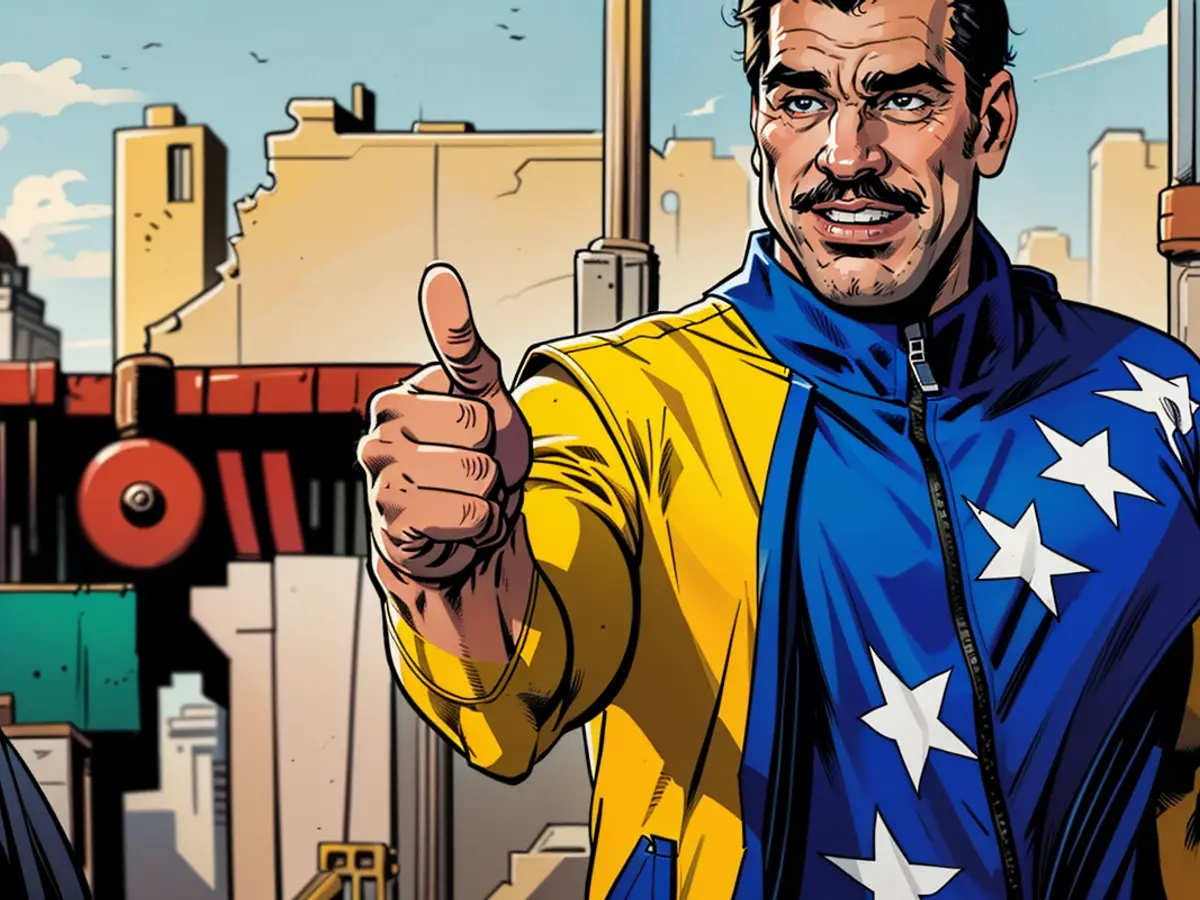Latin America - Maduro re-elected as President of Venezuela
Venezuela's authoritarian President Nicolás Maduro has been re-elected in the presidential election of the crisis-stricken South American country, according to official results. Maduro obtained 51.2 percent of the votes, the National Electoral Council (CNE) announced. His main challenger, former diplomat Edmundo González Urrutia from the Unitarian Democratic Platform opposition coalition, received 44.2 percent. The opposition's reaction was yet to come.
Prior to the election, several surveys predicted a victory for opposition candidate González. However, observers did not anticipate a free and fair election. Numerous opposition figures were arrested, and government-critical candidates were barred from running. The NGO Foro Penal reported over 300 political prisoners. Popular opposition leader María Corina Machado was banned from holding public office for 15 years due to alleged irregularities during her tenure as a deputy. In her place, the previously largely unknown González ran in the presidential election.
A quarter of the population has left Venezuela
Maduro can now begin his third six-year term in January 2025. The chances of a policy change in Caracas, according to observers, had been virtually nonexistent in recent assessments. Unlike the elections six years ago, the opposition presented a united front this time. Even loyal supporters of the socialist regime were disillusioned due to the catastrophic economic situation. Over 80 percent of the population in the once wealthy country with vast oil reserves live below the poverty line. Power outages, gas shortages, and medicine and gasoline scarcities are common. More than seven million people - a quarter of the population - have left Venezuela in the last ten years due to poverty and violence.
Maduro warned of chaos if the opposition won, threatening a bloodbath and a civil war in Venezuela. After casting his vote, he declared his re-election as "the only option for peace." He repeatedly referred to the Venezuelan electoral system as "the most reliable, transparent, and secure electoral system in the world."
European Union could not send election observers
The EU was not represented by observers at the election, as Venezuela's electoral body revoked their invitation due to existing personal sanctions against representatives of the National Electoral Council. Four former Latin American presidents were reportedly prevented from traveling to observe the election by Panamanian authorities. The United Nations sent some election experts but their roles are limited, as the body does not issue public statements on the evaluation of the electoral process.
Despite the European Union's absence due to revoked invitations and travel restrictions for observers, the Presidential election in crisis-stricken Venezuela saw Edmundo González from the opposition coalition challenge authoritarian President Nicolás Maduro. Maduro, having secured 51.2% of the votes, will commence his third term in 2025, with few expectations of policy changes in Caracas. Notably, the opposition presented a united front, but several key figures were arrested or barred, leading to over 300 political prisoners. Meanwhile, popular opposition leader María Corina Machado was disallowed from public office, resulting in González's election run. Amidst these circumstances, Venezuela continues to grapple with a catastrophic economic situation, forcing over a quarter of the population to migrate.








